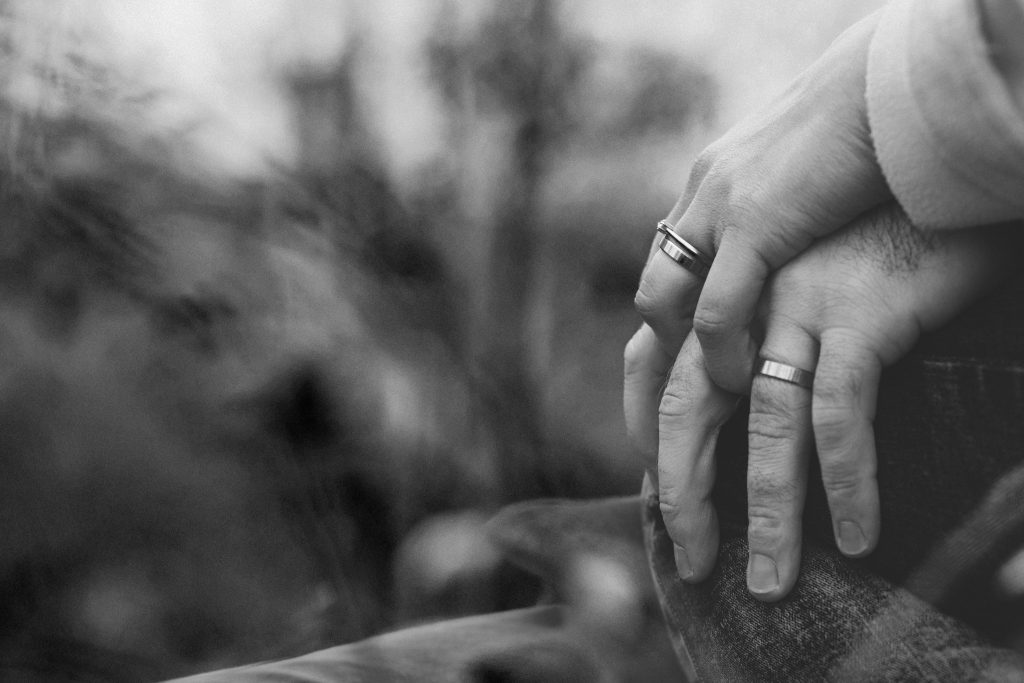Dementia care with Dorothy House – Glenys’ story
At Dorothy House, we offer Dementia Care services, facilitated by our Admiral Nurse, Esther McKillican. We spoke to Glenys, who cares for her 73-year-old husband, Ian, who was diagnosed with Dementia in 2022, about her experience with Dorothy House.
How it began
“I went to a Carer’s Day run by the Carer’s Centre in Trowbridge where I saw Dorothy House had a stand. I understood it to ‘just be a hospice’ and wondered why they were there. I spoke to Dom Denny who was on the stand and he explained that Dorothy House was aiming to develop services to reach out to those in the community who are caring for people with Dementia. Dom asked me why I had come to the Carer’s Day.”

Photo by freestocks on Unsplash
‘I said, “They’ve taken my Ian away. Sometimes they send him back and he is different. The more he changes, the more the person I know departs from me. Sometimes he’s there and he’s like a stranger.” That is the experience of Dementia.’
“When Dom heard my story, he said he would take my case back to Dorothy House and would be in touch with me within a few days. I was really impressed, because he was as good as his word. He was very empathic and understood the experience I was describing.”
Referral to Dorothy House Hospice Care
“The Family Support Team were happy to accept a referral for our case and we received a visit from Esther shortly afterwards. She assessed our situation and said they could support us. She has been in contact ever since autumn 2023 and has either been visiting once a month or calling us. She asked me what I needed and I told her I was grieving someone who was still alive, so asked for bereavement counselling.”
“Esther’s presence helps because it alleviates some of the emotional aloneness, because she understands.”

Admiral Nurse, Esther McKillican
“The opportunity to see a bereavement counsellor, in a place where I can imagine when I am back at the coalface is comforting. I can imagine Esther and the counsellor, who are aware of what I am going through. They know my fears, my anxieties, my pain.
The other thing Esther did for us was to help us fill out Respect forms. It signifies that Dorothy House has a long-term interest in us. They are there for us not just for now, but also in the long term, for our future.
I had four sessions of reflexology with Dorothy House. It was nice to lie down, look at the beautiful countryside and chat to Sharon. I opened up a lot; she was very still and receptive. It was helpful.”
What Dorothy House means to Glenys
“We do not have children, and Ian’s family are across the country so we do not have regular contact with family. Ian was very involved in the village, but he has had to withdraw from all his activities. I think people do not know what to say or how to ask. I have never experienced such social isolation in life. Some stigmatisation comes with Alzheimer’s and Dementia.
At first, I did not know how to be a wife and a carer of someone with Dementia. There is a central loss of your loved one, and then there are peripheral losses that hit you. We don’t receive invitations and I don’t have the energy to entertain. Ian does not speak much anymore, so I think people might find it dull.”
“The bereavement counselling I have received has been outstanding. The support from Dorothy House has been a godsend; it is the only organisation that has really been able to help us.”
“The main things I have needed have been emotional understanding and sharing without advice or judgement. Just acceptance and providing a receptacle for the pain, somewhere to contain my feelings. Empathy not sympathy.”
The experience of life as a Dementia carer
“This kind of grief is very complicated because you grieve the loss of the person, but you also have another person who is similar to take care of. You try to reconcile that person with the person you remember which is complex emotionally. You are simultaneously grieving and accepting a replacement not of your choice. One resents it because what you want is the person you had. Waking up in the morning, you see your husband and then suddenly you have to pinch yourself because he both is, and is not, your husband.”
“It is infuriating and bewildering, so you are always emotionally working. It is very hard to rest and find peace…”
“– the emotional strain is the biggest burden, with guilt about whether I was too short with him, not kind enough. Then there is the physical work, which is also constant.
A huge change has been the regression in my husband. I have to move from wife to mother. There is a profound loss of intimacy; there isn’t another person to hold me in mind, because he can’t think about my reality, while I have to think about mine and his. I have many thoughts about the future, worries about how he would survive if I died, and about his future death.”

Photo by Annie Spratt on Unsplash
“But I have learnt a lot; certainly trying to live for the day and that things don’t stay the same. What I grieved for yesterday is history; today is a new reality.”
“It is like a roller coaster in the wilderness. But I think I’m stronger than I was, and my counsellor thinks I’m coping better.”
Reaching out to Dorothy House for Dementia carer support
“I would recommend others to reach out to Dorothy House. It would not have occurred to me if I had not gone to the Carer’s Day. I have noticed that at Dorothy House, everyone always greets you.”
“As soon as I arrive here, I feel safe, received, noticed and accepted. I feel known. The significance of the place is very important, as somewhere to come to; it is a sanctuary.”
To find out more about Dementia services at Dorothy House and how we can support carers, please click here.
- Share this page:
- https://www.dorothyhouse.org.uk/?p=137075